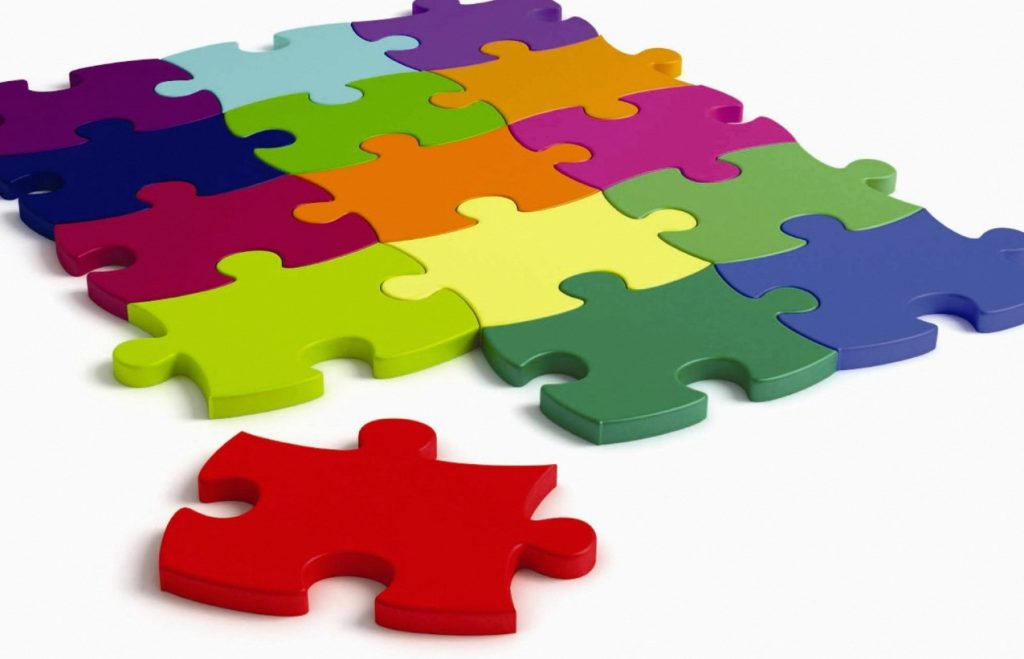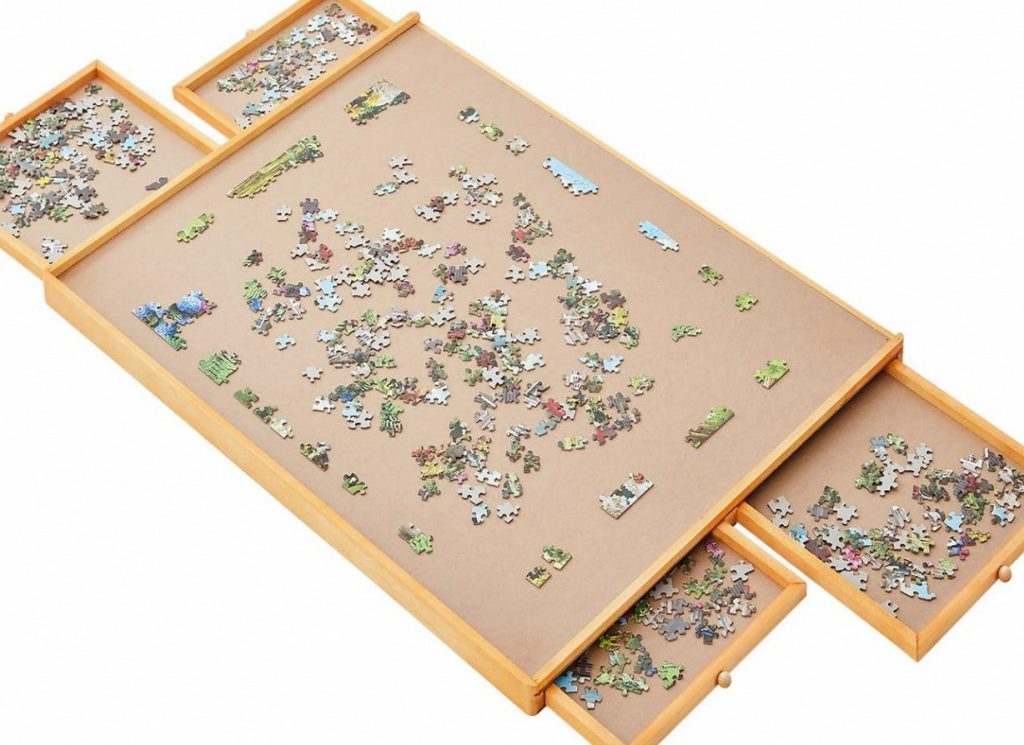Part 1: Introduction
Puzzles have been a popular form of entertainment and mental stimulation for centuries. From ancient civilizations to modern times, people have been captivated by the challenge and satisfaction that puzzles provide. In this article, we will explore different types of puzzles and the varied challenges they offer.
Part 2: Classic Puzzles for Traditional Fun
1. Crossword Puzzles:

Crossword puzzles have stood the test of time as a popular form of mental exercise and entertainment. Seen in newspapers and magazines for decades, these puzzles provide a unique challenge that tests your knowledge, vocabulary, and problem-solving skills.
When you tackle a crossword puzzle, you are faced with a grid of intersecting words and clues. Your task is to fill in the empty squares with the correct letters that form words, guided by the given clues. This process requires you to draw from your knowledge of words, their meanings, and their spellings.
Crossword puzzles go beyond simple word recognition. They demand an understanding of wordplay, cleverly constructed clues, and the ability to decipher cryptic or double-meaning hints. As you progress through the puzzle, filling in letters and completing words, you experience a sense of satisfaction and accomplishment.
Engaging in crossword puzzles regularly can improve your vocabulary, spelling ability, and mental agility. You expand your knowledge base, learn new words, and sharpen your skills in decoding and interpreting clues. These mental benefits make crossword puzzles an enjoyable and intellectually stimulating way to spend your time.
2. Sudoku:
Sudoku has indeed become a sensation in the world of puzzles. This number-placement game challenges players to fill a 9×9 grid with digits, ensuring that each column, row, and 3×3 subgrid contains all numbers from 1 to 9.

Sudoku puzzles require logical reasoning, critical thinking, and patience. As you tackle the grid, you must analyze the given numbers and strategically determine where the remaining digits should go. Each move must adhere to the rules and maintain the correct number placement throughout the entire grid.
The beauty of Sudoku lies in its simplicity and yet its ability to engage the mind. It is a puzzle that can be picked up and played anytime, anywhere, making it an ideal choice for a quick mental workout or a more prolonged challenge.
By solving Sudoku puzzles regularly, you can improve your logical reasoning skills, enhance your ability to think systematically, and develop a keen eye for patterns and relationships. Sudoku offers a satisfying sense of accomplishment as you progress through each puzzle, honing your problem-solving abilities along the way.
Part 3: Modern Puzzles for Innovative Challenges
1. Escape Rooms:
Escape rooms have surged in popularity, captivating enthusiasts in physical locations and virtual game formats. These immersive puzzles place you in a scenario where you must solve a series of interconnected puzzles to escape before time runs out.

The allure of escape rooms lies in their ability to challenge your problem-solving abilities, teamwork, and creativity. As you explore the intricately designed rooms, you must examine every detail, uncover hidden clues, and connect the dots to unlock new challenges and eventually find your way out.
Escape rooms demand both individual and collaborative thinking. You must communicate and cooperate with your teammates, pooling your collective intelligence to decipher riddles, solve puzzles, and unlock secret compartments. Together, you navigate the twists and turns of the storyline, experiencing the thrill of piecing together the puzzle’s narrative.
These immersive experiences provide a break from reality, transporting you into a world of mystery and excitement. The timed nature of escape rooms adds an extra layer of adrenaline, intensifying the challenge and heightening the sense of achievement upon completion.
Whether you choose a physical escape room or a virtual version, this genre of puzzles offers an engaging and immersive experience that challenges your problem-solving skills, tests your teamwork abilities, and rewards you with a thrilling adventure.
2. Logic Puzzles:
Logic puzzles come in various forms, such as grid-based puzzles, deductive reasoning puzzles, or lateral thinking puzzles. These puzzles require you to analyze information, make deductions, and find the correct solution using logical reasoning. Logic puzzles challenge your ability to think critically, make connections, and solve complex problems, offering a mental workout and a sense of accomplishment when you crack the puzzle.

Part 4: Digital Puzzles for Technological Challenges
1. Jigsaw Puzzles:
Jigsaw puzzles, a beloved classic, have embraced the digital era, offering a new way to enjoy the challenge of piecing together images on your computer or mobile device. Digital jigsaw puzzles provide a range of features that enhance the experience.
One significant advantage of digital jigsaw puzzles is the ability to adjust the difficulty level. Whether you’re a novice or an experienced puzzler, you can customize the number of pieces, making the puzzle accessible and enjoyable for all skill levels. Furthermore, digital puzzles often come with additional features, such as the ability to rotate puzzle pieces, providing an extra layer of complexity to the gameplay.
These puzzles challenge your visual perception and spatial reasoning skills as you analyze the shapes, colors, and patterns to fit the scattered pieces together. It’s a test of patience and attention to detail as you gradually build the image.
Digital jigsaw puzzles also offer the convenience of time tracking, allowing you to compete against your previous records or challenge friends to beat your completion time. This adds an element of excitement and motivation to the puzzle-solving experience.
2. Match-3 Games:
Match-3 games have gained immense popularity on mobile devices. In these games, you must swap adjacent tiles to make matches of three or more identical symbols, causing them to disappear from the grid. Match-3 games challenge your pattern recognition, strategic thinking, and ability to plan ahead, as you aim to clear the grid and achieve high scores.

In Conclusion, puzzles offer a wide range of challenges to entertain and engage our minds. From classic crossword puzzles and Sudoku to modern escape rooms and logic puzzles, these brain teasers offer mental stimulation and enjoyment. The rise of digital puzzles like jigsaw puzzles and match-3 games has brought new dimensions to puzzle-solving. Technology has made it possible to enjoy puzzles in different formats. Whether you prefer the traditional charm of pen and paper or the convenience of digital platforms, exploring different types of puzzles is a fantastic way to keep your mind sharp. It’s an opportunity to have fun while challenging yourself. Puzzles provide a cognitive workout, enhancing problem-solving skills, critical thinking, and creativity. They offer a break from daily routines and can be enjoyed alone or with friends. So, whether you’re solving puzzles offline or diving into digital puzzles, the benefits are undeniable.